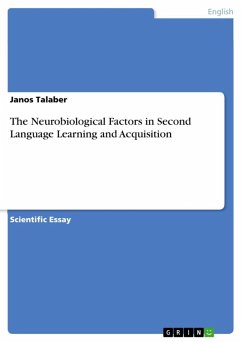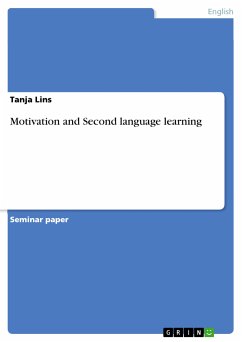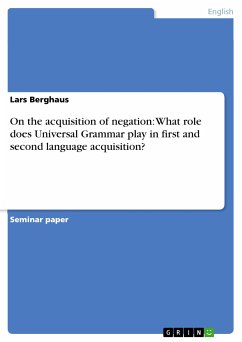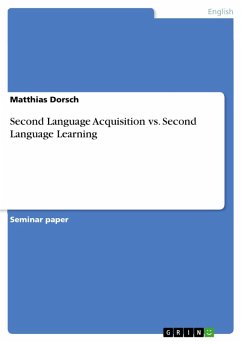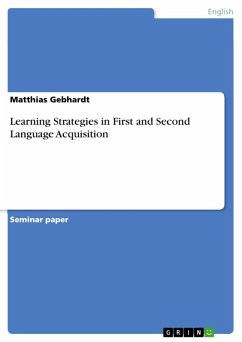Scientific Essay from the year 2011 in the subject English Language and Literature Studies - Linguistics, University of Debrecen (Regnum-M Educational Co. / University of Debrecen), course: English Language and Literature Studies - Linguistics, language: English, abstract: It is obvious that second language acquisition is a very inevitable phenomenon in language learning procedure, hence there is a whole library of books dealing with SLA. Contemporary findings (Pléh, 2010) have also showed that LA is one of the most important processes in our life, determining the whole procedure of language learning, not only in the case of second language, but also in the case of our mother tongue. Moreover, the whole process includes memorizing things, conceptualization, connecting cognitive information and eventual accuracy in the use of language. Interestingly enough, contemporary findings have also proved (Deb K. Roy et al., 2002) that first language acquisition begins even before the birth of the child, which means that the adaptation to the new circumstances and verbalcommunication starts in the mother's uterus. These new researches and our devotion to medical disciplines1 have made us compose an essay on the biological factors of Second Language Acquisition. No doubt, biological and neurobiological factors are very severely important parts of LA procedures, however, they are not really put into the focus of linguistic experts. The reason for this might be traced in several things: there are some (Birnbaum, 1996) who think that biological factors are not so important, since linguistic experts are supposed to be dealing with the technical and mechanical factors of language acquisition (e.g. how we learn the things, what methodology or approaches we need to master the language properly, etc.). Others note (Clark, 1997) that even when biological factors are very determining, linguistics are obliged to stick to the main stream of language acquisition, which is - beyond any questions - not a biological but a psychological factor.However, there are a lot more others who support biological factors and dealing with neurobiology deeply in contemporary writings. These opinions all encouraged us to write an essay onbiological factors, emphasizing that biology and neurobiology are very important in Language Acquisition. Furthermore, in accordance with the new scientific findings and surveys, we were really given the suggestion that there is a great need for dealing and utilizing neurobiology in the frame of linguistics.
Dieser Download kann aus rechtlichen Gründen nur mit Rechnungsadresse in A, B, BG, CY, CZ, D, DK, EW, E, FIN, F, GR, HR, H, IRL, I, LT, L, LR, M, NL, PL, P, R, S, SLO, SK ausgeliefert werden.

